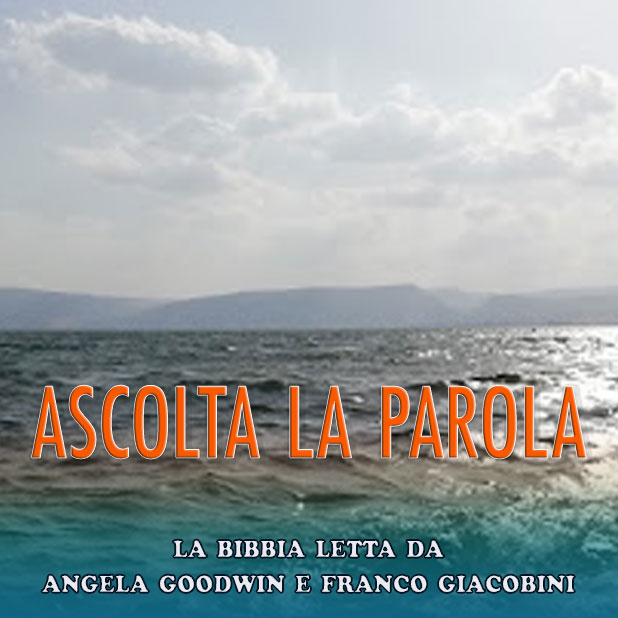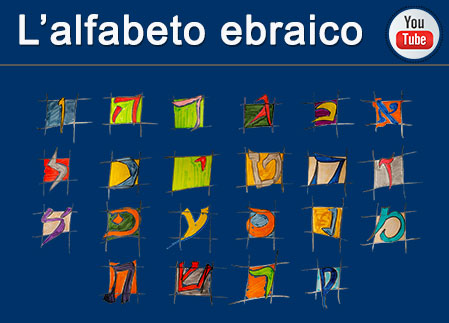International Council of Christians and Jews
Germania 10/04/1983
The following guidelines, developed at a consultation held by the International Council of Christians and Jews at the Martin Buber House, Heppenheim, Federal Republic of Germany, April 7-10, 1983, were submitted for adoption at the Annual Meeting of the ICCJ at Amersfoort, The Netherlands, on August 25-26, 1983.They are intended for the guidance of authors and publishers, and also of teachers and education administrators, as well as government authorities responsible for education. They apply to all levels: primary, secondary, postsecondary and university, both general and specifically theological.
Textbooks in general
Introduction
Much work has been done in this field, particularly in the last 30 years; indeed, a major purpose of the 1983 ICCJ Consultation was to take stock of it and move forward from it.
It is axiomatic that textbooks, in order to be educationally acceptable, must take into account the latest and best research and scholarship.
They must encourage an attitude of respect for all people.
They must recognize and understand the special historical and theological relationship between Jews and Christians. This relationship must be acknowledged, and further explored, in teaching materials and in teaching methods and approaches.
Historical Considerations
A sense of history must be achieved in the light of present reality. It develops slowly throughout childhood and adolescence; hopefully it evolves continually in adult life; but particularly in formative years, it requires specific, positive educational help.
The learning of history must lead to the acquisition of fundamental values, not the least of which is the direction it offers for the future.
The three dimensions of past, present and future come together in the celebration by Jews and Christians of their respective festivals, in ways maintained throughout the centuries and still carried on today.
Throughout European history, Jews have been present (with some gaps of expulsion) in every country. Their contribution to that history has been considerable, but it has been significantly neglected. Their experience has in many respects been radically different from that of Christians, and it deserves to be brought back into historical view: the confinement in ghettos, the selective persecution, the restriction of economic, educational and social opportunities, the so-called "final solution°, the impact of the creation of the state of Israel.
Recent Scholarship, Christian even more than Jewish, has focussed on the life of Christ and on the early years of the Christian era. It has brought out major misrepresentations and inaccuracies with respect to Jews and Judaism, and having so long been accepted as truth, pervade textbooks and teachings. This work underlines the need for the review and revision of teaching materials the writing of new texts, and the re-thinking of education approaches.
Theological Considerations
Theology always strives towards greater understanding. Christian and Jewish theologians today are developing a fuller reciprocal comprehension of the relationships between their respective traditions. The complexity of Biblical texts, and of the teachings which have derived from them, should not be underestimated. Oversimplification may lead not only to inaccuracy but also to misrepresentation. All teaching of children, however, involves some form of simplification of subject matter: the omission of material and of concepts for which the child is not yet intellectually or psychologically ready. In educational terms, simplification posits a thorough grasp of the matter to be simplified, and this imposes a special responsibility on the teacher.
Christian scriptures can be fully understood only through accurate knowledge of the life and thought of the Jewish world which was contemporary with what they relate, and of the surrounding Graeco-Roman world as well. Jesus, his family and his apostles were Jews. Their lives and practices were typical of the Jewish world of that time. This fact is essential to the understanding of their story.
The teachings of Jesus, and the development of early Christian thinking as recorded in Christian scriptures, can be better understood if illuminated by accurate knowledge of coeval Jewish values and ethics set down in later times, in the Midrashim, the Mishna and the Talmud. These texts are difficult, and their approach requires the careful application of appropriate historico-critical methods.
In the time of Jesus, reference to the Bible was only to what Christians call the "Old Testament" (preferably "Hebrew scriptures"). It is important to recognize that this Book is still for Jews a coherent and complete text, the source of a living tradition. It has a living and independent validity, as a record and source of Jewish tradition and teaching. Its integrity must be respected, and consideration of it must not be limited to its significance in Christian teaching.
Jewish life and practice in the time of Jesus, and still more so Jewish life and practice today, cannot be circumscribed by reference to the bible. Throughout the intervening centuries, and continuing in the present time, Judaism has produced a vast and still growing literature which provides theological insights of indispensable value.
Christianity also has been developing throughout the ages. As in the case of Judaism, this development has led to diversity. There is much parallelism in the evolution of both, underlining the origins they have in common and the shared ideals and hopes to which both aspire.
Conclusion
It is the aim of these guidelines to foster the production and use of texts which dispel the inaccuracies and misconceptions which have been the seeds of prejudice and persecution. It is their further objective to encourage continuing scholarship, research and dialogue.
Teaching of history
In this field as in every other, attitudes are formed by exposure to teaching approaches and materials, and of course to people.
Criteria for the analysis of the portrayal of Jews and Judaism in textbooks for religious instruction and catechesis have been developed in different countries. With regard to the teaching of history such criteria already exist at least in one country (West Germany).
Chaim Schatzker, Die Juden in den deutschen Geschichtsbiichern ("Jews in German History Books"), 1981.
On the basis of Schatzker's school-textbook analysis, the ICCJ and/or the Deutscher Koordinierungsrat der Gesellschaf ten fur Christlichjiidische Zusammenarbeit should submit to German governmental authorities, as well as to school-textbook publishing houses, to authors, to historians and to suitable journals, proposals for the revision of history textbooks. Similar presentations should be made to appropriate authorities in other countries.
A basic principle should be established: that nothing should be presented in isolation from the comprehensive historical context of Judaism, of Jewish life or of Jewish-Christian relations.
Jews in Antiquity
The specificity of Jewish life and faith, including Jews' perceptions of themselves, requires careful analysis. Jews must not be disparaged on the grounds of stereo- typical portrayals of their relationships to the newly-developing Christianity, in the stereotypical images that the Pharisees manifested mortal enmity towards Jesus, that the Jewish people were responsible for Jesus death, that only Christianity offered a God of Love in contrast to the Hebrew God of law, that Christianity had displaced Judaism, that only Christianity had a universalist orientation. On the contrary, the emergence of the Christian faith community must be shown to have occurred within the framework of Judaism (viz., the Jewishness of Jesus and his disciples, the rapid spread of Christianity across Diaspora Judaism, etc.).
The divergence of early Christianity from Judaism must be presented in the full detail of their historical relationships in those early days of the Christian era.
The destruction of the Temple in the year 70 of the Christian era, and of Jerusalem in the year 131, must not be interpreted as denoting the end of Judaism and of the Jewish people. The religious and cultural reconstruction of Judaism by Pharisaic-rabbinic initiatives enabling the Jewish people to preserve their identity and vitality in a life lived increasingly in the diaspora, requires an attention hitherto not accorded to it.
Jews in Mediaeval Times
The persecution of Jews was often justified on the basis that they were usurers; but it must be recognized that most other occupations were closed to them, and indeed that other people — Lombards, Fuggers, et al. —were also engaged in money-lending but did not generally receive the same opprobrium.
The history of mediaeval Jews must not be limited to stories of martyrdom. Due attention must be paid to the economic, social and spiritual contributions of Jews to the life of the world, contributions of which the Christian peoples of the West were significant beneficiaries: in philosophy, astronomy, medicine, trade, linguistics, theology, etc.
Judaism in Recent Centuries
The evolution of Judaism and of Jewish life in recent centuries cannot be adequately understood without a comprehensive historic consideration of many elements, of which the following seem especially significant:
— The attitudes towards Jews manifested by Martin Luther and the Reformation;
— The Enlightenment, together with the presupposition and the reality of emancipation;
— Jewish assimilation, and its relation to the racialist antisemitism of the 19th century and to the eventual birth of the Zionist movement;
— The contributions of Jews to the cultural, economic and social life of each country;
— The persecution and extermination of Jews under the Nazi regime, as the culmination of a two-thousand year-old anti-Jewish tradition;
— The state of Israel, in the light of history and of present-day problems, and its impact on the Jewish people and on the world.
Judaism, the Jewish people and Jewish intellectual activity did not vanish with the arrival of Jesus, remain in ghostly limbo for 1900 years and reappear in the twentieth century. Their continuity needs to be restored to the historical record. It is worth noting that history books have often, perhaps unconsciously, uncritically assimilated theological or religious judgments.
The objective transmission of historical information and analysis is an exacting responsibility for teachers of history. This is even more true where Jewish history is concerned, and the human dimension deserves special attention.
Conclusion
Existing history textbooks require careful and objective re-evaluation. It is true that formal history lessons are not the only factors which influence attitudes; but young people especially must be helped, at the very least in this formal way, to recognize and understand the historical roots of prejudice and be motivated towards respect and friendship for all.
The ICCJ should create an appropriate committee for the pursuit of the work begun at the 1983 Consultation including the application of these considerations to the various social sciences.
557 visualizzazioni.
Inserito 01/01/1970
Relazioni Ebraico-Cristiane
Ultime novità nel sito
- 19/04/2020: Articolo - L’enigma della Maddalena
- 23/02/2020: Articolo - Il locus amoenus nelle catacombe ebraiche e cristiane di Roma
- 16/02/2020: Articolo - Il profetismo nel Vicino Oriente antico
- 13/02/2020: Articolo - I Profeti della Cappella Sistina
- 09/02/2020: Articolo - Gerusalemme e la Terra Santa di Israele


